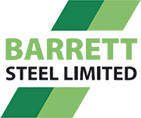So far you have enjoyed a successful career. You’ve made it to senior director level or are part of the c-suite. But what’s next? You may have been thinking about a lifestyle change for a while. Perhaps you just want to step off the treadmill of continuous employment or maybe you have personal or family reasons for wanting to take a step back. But in addition to needing an income, you don’t want all that experience and knowledge to go to waste, and everyone needs a reason to get up in the morning.
If you’ve always harboured the ambition to open a small furniture shop or write a novel then go for it. But for many of us in this position the answer may lie in building a portfolio of a number of non-executive director positions. This can be a highly attractive option for those wishing to step aside from the intensity of executive leadership roles but still want an intellectual challenge, use their skills and knowledge whilst still generating an income.
So, what do you need to think about when considering the transition from your executive career into a non-exec or portfolio employment setting?
Find your niche – Think about your unique skill set and experience. How do you differentiate yourself from the herd. If you only market yourself as a capable, experienced executive, work as an non-exec will be much harder to come by.
Know your why – Make sure you are clear in your own mind as to why you want to transition to a portfolio career and what you want to achieve. Is it a greater work-life balance? The chance to focus on a component you enjoy in your executive career (e.g coaching) or maybe it is just the opportunity to give back to up and coming firms.
Remember this is not a promotion – Working with a number of PE backed SME’s is not going to get you a seat on the board at Virgin Media. Non-exec careers allow you to continue at the level you started but rarely lead to moving up the ladder.
Make sure you are satisfied with where you have got to in your career and see it as a continuation, albeit in a different way.
It’s going to be slower – After a career of intensity and urgency running teams and managing the day to day of business, things are going to slow down quite a lot. Meetings might be monthly and consultancy projects have a longer delivery schedule so you will need to adjust your expectations and manage your time accordingly.
There will be frustrations – Executives make decisions, they get things done. As a non-exec your role is to advise then step away, and this can be frustrating. You’ll need to work hard on the stepping away mindset and learn to love the idea of a ‘Nose in, fingers out’ approach to your career.
Network, Network, Network – This is really important. Build and nurture your network. Make people aware of your success in your executive career. Recommendations from your network are often the key to getting that first conversation going. Think about the variety of skills you bring to the party and how that benefits the company concerned.
The advantages of a non-exec or portfolio career are many.There is the opportunity to work across a broader range of sectors. A chance to see the company as a whole and focus on strategy.There’s also greater flexibility in managing your time and a better work-life balance. Indeed with the recent upheaval in the job market due to Covid, many are now considering this portfolio approach to work as something to embrace. And although non-exec appointments tend to be quite sector focused some companies are waking up to the fact that non-exec’s from other sectors can refresh their thinking and bring new perspectives to the business.
So if you are in an exec role and thinking about a change in the pace of your career, then the time is now.
By Michael Thomas






































